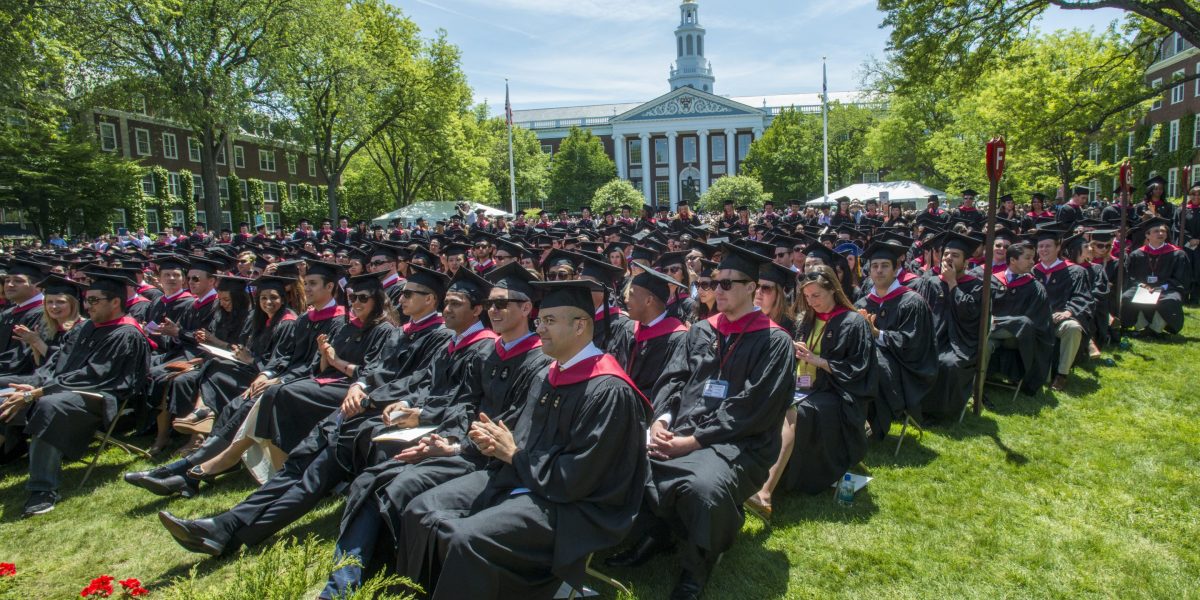A new report shows there is surging student demand for an MBA degree. Between 2023 and 2024, the number of total applications to U.S. MBA programs rose by a staggering 11%. That’s after two consecutive years of declines, according to a survey released by the Graduation Management Admissions Council (GMAC).
Full-time MBAs experienced the largest share of growth in the past decade, with 80% of two-year programs worldwide experiencing application increases. Moreover, two-thirds of flexible and online MBA programs saw application upticks globally.
Advertisement
STEM-designated. Tar Heel ROI. No compromises.
UNC Kenan-Flagler’s top-ranked online MBA is designed for experienced professionals looking to take their career to the next level. Students have access to lifelong career benefits and a global network of 51,000+ business school alumni. Earn your MBA online in as few as 18 months or up to three years. MBA Fellowships Available.
Learn More
Historically, MBA application trends have run counter-cyclical to the U.S. economy, meaning when the job market is not faring well—and taking time off for school is less risky—more individuals seek out graduate business education to learn new skills.
However, while the national unemployment rate remains low at 4.1%, it remains challenging for many young adults to find jobs.
Why are MBA applications soaring?
The rise in applications is a two-pronged “vicious cycle,” says Scott Edinburgh, an MBA admissions consultant and the founder of Personal MBA Coach. Because of the economic uncertainty, more unemployed individuals are applying, and having more success than normal at getting into MBA programs, he explains. At the same time, a more competitive field leads others to widen their scope to more schools, and thus, increase the number of applications.
“Unsurprisingly, there is an uptick in applications when the job market becomes uncertain or during economic downturns, a time when people often seek further education to improve their skills, broaden their career opportunities, or make a pivot into different industries,” adds Stacy Blackman, an MBA admissions consultant—who says there was a similar surge in 2008.
At Pepperdine University (Graziadio), for example, there has been a nearly 25% growth in application volume over the last two cycles, according to Arman Davtyan, assistant dean of enrollment management at Pepperdine Graziadio Business School.
“As we begin to see signs of a cooling labor market, some prospects may be revisiting their previously postponed plans to go back to school,” explains Davtyan. “The dramatic proliferation of AI across industries and functional areas may also be serving as a catalyst for pursuing new professional skills as a way to ‘future-proof’ their careers.”
Joy Jones, president of GMAC says the latest news may be more than just an economic trend.
“…I would give much credit to global business schools and their tremendous efforts to continue innovating with new technologies, new delivery tactics, and new ways of operating that satisfy the latest interests and needs of students and their future employers,” Jones says in a press release.
The best of the best business schools also experienced application growth, but that does not necessarily mean more seats are available. While Harvard Business School saw an over 8% increase in the number of applications to its class of 2026 versus 2025, the school’s class size decreased by eight students year to year.
MBA applicants continue to break the mold—and want flexibility
Two-thirds of online and flexible MBA programs also saw application upticks in 2024. And while about half of executive and part-time MBA programs saw application declines, the total number of applications sent to these program types grew. GMAC’s report says this indicates that “those increasing applications were sent to a more concentrated group of programs rather than dispersed across them.”
Applications from first-generation students and women also notably grew. Two-thirds of full-time MBA programs saw more women apply, though only a handful of business schools have gender parity in their MBA programs. Northwestern University (Kellogg) joined schools like George Washington University and Pepperdine University this year to meet the gender parity mark.
While traditional MBA topics like finance, leadership, and strategy, are still a large focus for students, a growing number seek an MBA to learn about the evolving business landscape in relationship to AI, data analytics, and sustainability.
“With digital transformation accelerating, many of my clients want to know how to lead in industries that are rapidly evolving,” explains Shaifali Aggarwal, CEO of Ivy Groupe. “An MBA still holds its place as a key tool for those who not only want to keep up with these changes but also lead them.”

